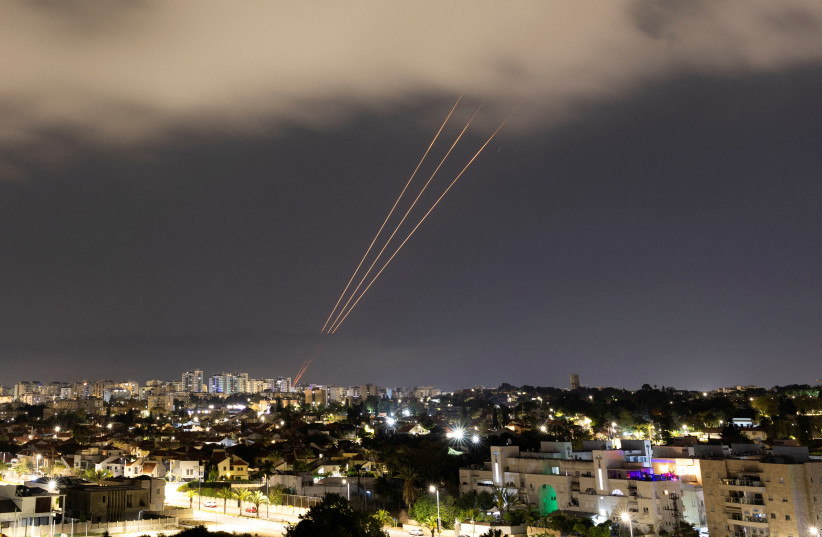Israel’s allies called on the IDF not to directly respond to Iran’s first-ever direct missile and drone attack against the Jewish state early Sunday morning, as Prime Minister Benjamin Netanyahu convened the war cabinet to debate the proper response.
Israel has “every right to respond,” British Foreign Secretary David Cameron told LBC Radio on Monday morning, adding that Iran’s use of “ballistic missiles” on Sunday, “in a state on-state attack is a very significant move by Iran.
Despite this, he said, “We’re asking [Israel] as their friends to think with their head as well as heart, to be smart as well as tough, to recognize Iran has failed and the best way to deescalate the situation is not to attack back.
“The best way to de-escalate the situation is not to attack back,” but rather to pivot back to Gaza to find a way to return the hostages, and conclude the Israel-Hamas war, he said.
Cameron said that he has spoken twice to his Iranian counterpart in the last seven days, about the escalating tensions between Israel and Iran.

The UK was also part of a coalition of forces, including the US, French, Jordanian, and Israeli armies, that prevented 99% of the Iranian-launched missiles and drones from landing in Israel.
Iran has suffered a failure with Sunday’s attack, Cameron said.
“I think the best way to keep people in Israel safe is actually to recognize that an escalation.. is not in anybody's interest not in the interests of people in Israel,” he stated.
French President Macron's statement
French President Macron told BFM TV and RMC radio his country will do all it can to avoid further escalation in the conflict between Israel and Iran in the Middle East, President Emmanuel Macron said on Monday, urging Israel to show restraint in any response.
"We are all worried about a possible escalation," Macron told BFM TV and RMC radio. "We will do all we can to avoid things flaring up, escalating, " Macron said, urging Israel to aim to isolate Iran rather than escalate the situation.
On a visit to China, German Chancellor Olaf Scholz urged Israeli restraint.
Germany, France, Belgium, and the Czech Republic’s foreign ministries summoned Iranian ambassadors stationed in their capitols to protest Tehran’s attack on Israel.
Italy, which holds the rotating presidency of the Group of Seven major democracies (G7), said it was open to imposing new sanctions against individuals supporting terror activity against Israel, its foreign minister said on Monday.
"If we need to have more sanctions for people clearly engaged against Israel, supporting for example terrorism, supporting Hamas, it is possible to do it. But we need to be very serious and to work all together," Italian Foreign Minister Antonio Tajani told Reuters.
The European Union's foreign policy chief Josep Borrell told Spanish radio station Onda Cero, “We're on the edge of the cliff and we have to move away from it, We have to step on the brakes and reverse gear.”
Borrell said he expected a response from Israel to the unprecedented aerial attack by Iran but hoped it would not spark further escalation.
Russia has refrained from criticizing its ally Iran in public over the strikes but expressed concern about the risk of escalation on Monday and also called for restraint. "Further escalation is in no one's interests," Kremlin spokesman Dmitry Peskov said.
Top Russian security official Nikolai Patrushev discussed the rising tensions in the Middle East with Israel’s National Security Adviser Tzachi Hanegbi, Russian news agency Interfax reported on Monday.
The United States has called on Israel to consider the joint defensive action as a win and has said it would not participate in any direct Israeli attack on Iran.
Reuters contributed to this report.
